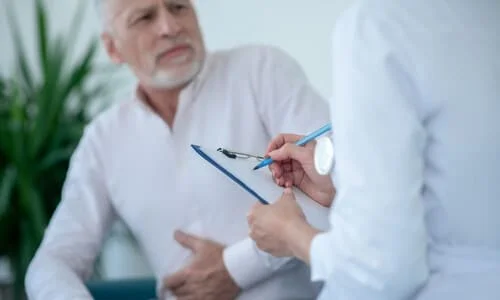 Many people walk away from car accidents assuming they got lucky and were not hurt. This is especially true if they were in a low-speed collision or other types of “fender bender” accident, where the outcome is considered to be “property damage only.”
Many people walk away from car accidents assuming they got lucky and were not hurt. This is especially true if they were in a low-speed collision or other types of “fender bender” accident, where the outcome is considered to be “property damage only.”
In reality, even minor car accidents can lead to major medical problems. The impact forces of a car crash are always great, even at low speeds, and these forces can easily transfer to those who are hit, leading to possible injuries.
These Injuries may include internal bleeding, soft tissue damage, concussions, whiplash, lacerations, and more. Even worse, in many cases, injuries will not appear for weeks or even months after the accident.
Because of the risk of delayed diagnosis for major health issues, victims involved in an accident should always seek medical attention, even if they do not feel hurt at the moment.
After you have received an injury diagnosis, Singh Ahluwalia Attorneys at Law will provide you with a confidential, no-obligation case review to discuss the strategies for seeking compensation from the at-fault party.
Call (559) 878-4958 or contact us online to schedule your risk-free appointment today.
How Long After an Accident Should You See a Doctor?
You should always see a doctor or urgent care clinician promptly after you have been involved in any sort of car accident.
For any potentially serious injuries, including those involving blows to the head, jerking neck movements, bleeding, swelling at the joints, or a loss of sensation in extremities, those involved in a car accident should see a doctor within the next 12-24 hours, if not sooner.
If you feel only minor symptoms or even if you feel no symptoms at all, you should still report to your primary care doctor or an urgent care center within the next few days.
You will want a full medical evaluation in case you have sustained latent injuries, including damage to tendons, the brain, or soft tissue, whose symptoms have not emerged yet.
Common Causes of Low-Severity Road Accidents
While minor accidents do not account for many deaths, they are known to cause significant injuries, especially when the person hit is a pedestrian or someone riding a motorcycle/bicycle.
Fender benders are commonly caused by drivers backing up without looking, as well as negligent driving in dangerous weather conditions, distracted driving, and following too closely in slow-moving traffic.
Minor accidents might seem harmless to those involved, but that is not always true.
Victims of minor car accidents should seek medical attention immediately after an accident occurs. When humans are placed in stressful situations, the human body naturally releases a stress hormone called adrenaline.
Stress hormones in the body easily mask injuries at the moment and even in the days following, only to manifest weeks or months after the accident.
Facing Potential Injuries
Accidents often lead to physical injuries that can be clearly seen or felt at the scene; however, there are times when injuries may not appear until many weeks after an accident.
Victims who begin feeling pain and discomfort should seek immediate medical attention, as some of the later-presenting injuries can lead to potentially life-altering or deadly medical conditions.
Common symptoms and injuries victims face after an accident are the following:
- Abdominal Pain — Ruptures and tears can cause internal bleeding and damage other internal organs. Internal bleeding or damage to internal organs, like the spleen, can cause abdominal pain after an accident and can appear weeks later. Victims must seek medical attention immediately if they feel any abdominal pain after being in a minor car accident.
- Back Injuries — Spinal cord injuries are the most severe injuries in car accidents. This kind of injury can lead to fractures, paralysis, and other medical complications. While uncommon in minor car accidents, spinal cord injuries are still the most dangerous of all potential injuries and worth investigating if any pain, numbness, or weakness is felt. Victims who delay treatment may face chronic pain, hernias, nerve damage, and other conditions.
- Chest Injuries — Car accident victims may be short of breath or battling fatigue or dizziness. The fact is that the force of a car accident can break ribs that can puncture surrounding organs. No matter how minor the chest pain is, medical attention should be sought immediately if this symptom is felt after a car accident, including when chest pains occur weeks after the accident itself.
- Head Injuries — Head injuries can be caused by strikes against the dashboard or cabin walls, as well as flying glass, displaced objects inside the vehicle, and even the force that thrusts you forward. While most of these injuries are minor, a few can be very dangerous, like Traumatic Brain Injuries (TBIs). Worst of all, the symptoms are rarely visible in the immediate aftermath of an accident. TBIs occur when you receive a jolt or are forced quickly in one direction, where your brain bounces inside your skull. This injury can lead to chemical changes in the brain and brain cell damage, especially if treatment is delayed.
- Knee Injuries — Knee injuries are common in car accidents, even minor ones. They can be treated with physical therapy or chiropractic adjustments to provide additional support. After being in a car accident and encountering knee pain, it is crucial to see a doctor immediately to find the root of the problem. Knees are critical for mobility, and a compromised range of motion can significantly change in lifestyle of those who are hurt.
- Neck Injuries — While whiplash is the most common injury after a car accident, it usually does not present until many hours, or sometimes days, later. Whiplash can create limited mobility and loss of flexibility, and stiffness, as well as more intense symptoms like dizziness or insomnia.
- Pelvic Injuries — Pelvic injuries in car accidents are serious problems since most car accident-related injuries to the pelvis usually lead to fractures. Two types of fractures can occur a stable fracture and an unstable fracture. Both will require physical therapy and months of recovery. In the event that the injury is an unstable fracture, it can become life-threatening due to the number of breaks in the pelvic bone and the heightened risk of internal organ damage. In addition, patients with these injuries will need physical therapy after their surgeries as they adjust to living with pins, plates, and screws to recover from their injuries.
Consent to Receive All Necessary Diagnostics and Medical Treatments After a Collision
Doctors and medical staff are experts in administrating pain management for their patients. They will identify what procedures, surgeries, and treatments are needed in order to diagnose and treat an injury.
As a patient, you are solely responsible for seeking medical attention within a reasonable time and consenting to any required X-rays, CT scans, and MRIs. These medical tools help provide insight into what is causing pain or injury and lead to a correct diagnosis and treatment plan.
Victims of minor car accidents should follow up with their legal team and medical physicians in cases where they discover new pain. Cases of new pain will be documented and included as part of the damages in a claim.
Types of Imaging Commonly Run After a Crash
Doctors and medical staff determine the best tests to identify any visible and internal injuries causing pain. Multiple tests can be run during this evaluation to ensure that all bases are covered. Images may also be taken. The most common images performed are:
- MRIs — Scans that are used to show detailed imaging of the organs and tissues of your body. These scans can determine a multitude of medical issues, including those that may be causing you pain. We use MRIs to identify the source of what is causing you pain.
- X-rays — A type of machine that creates imaging in different shades of black and white, showcasing bones and identifying potential fractures and breaks. X-rays are used to determine injuries and monitor the progression of healing.
- CT Scans — CT scans are also known as Computerized Tomography scans, which combine X-ray images at different angles to create an image of the internal part of the body. With these images, medical teams can see bones, blood vessels, and soft tissues that are otherwise invisible to the naked eye. In addition, detailed images provide significant images that an X-ray cannot provide. CT scans are often used in cases of car accidents and injuries, especially when possible organ or nerve system damage has occurred.
Apart from scans, doctors will complete a full evaluation of the victim that can include additional medical diagnostic tools and procedures.
New Symptom? Do Not Delay Follow-up Medical Care
The presence of the adrenaline hormone triggers a fight-or-flight response. Because of that, many people do not feel as if they are injured at the scene of a minor accident.
However, days or even months later, they may face intense pain and discomfort that they cannot function normally. Pain restricts what a person can do daily, whether working or participating in sports, hobbies, and even housework.
Victims should seek medical attention the moment they feel a new injury related to the accident and call their legal team as soon as possible. There are even cases where it is recommended that the injured get an evaluation to uncover injuries before the worsening or the pain begins.
Receiving the Medical Diagnosis Can Help with a Legal Claim
Medical attention should be sought immediately after the accident. The longer the injured waits for a medical evaluation, the harder it can become to prove that the injury was related to the accident.
In cases where the accident was not the victim’s fault, they will be dealing with an unknown insurer, who will find whatever reason they need to refuse the payout.
Receiving a medical diagnosis as soon as possible can fortify your claim and confirm that it occurred as a result of being in a minor car accident.
Fender Benders Can Cause Injuries
Dealing with pain from a minor car accident can prevent you from enjoying doing the things you love and even spending time with your family.
If you are dealing with chronic pain, stiffness, limited mobility, or any other medical conditions caused by a car accident, it is important to seek immediate medical attention and call your attorney.
In cases where the other driver was at fault and you were injured, you may be eligible for compensation, but you must call a Fresno car accident attorney first. Your medical expenses should not come out of your pocket due to someone else’s negligence.
At Singh Ahluwalia Attorneys at Law, our car accident lawyers have years of experience fighting to get the compensation victims of minor car accidents deserve.
In pain? Don’t wait.
Call us at (559) 878-4958 or contact us through our online form today for a no-obligation case review.


